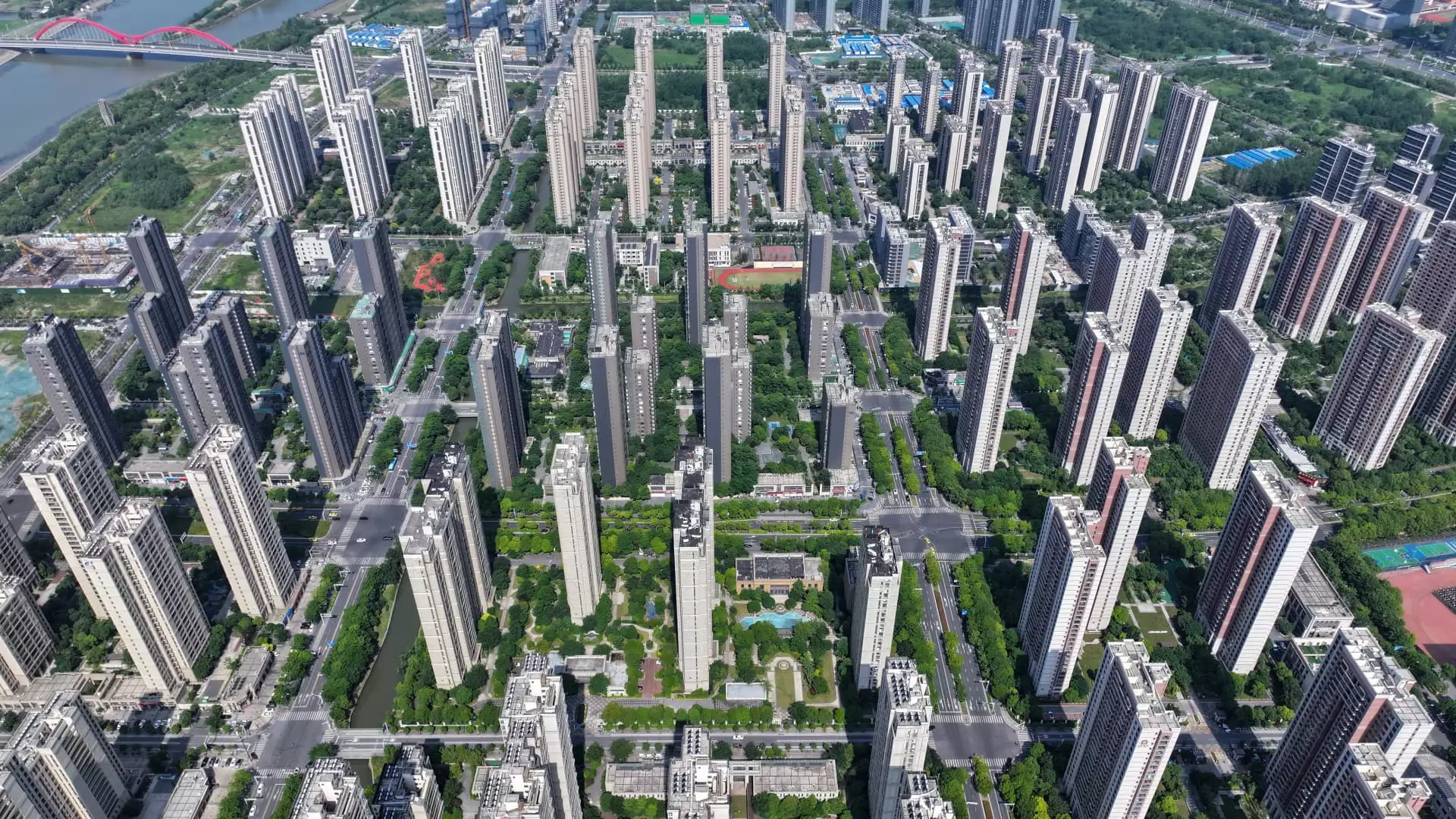Recently, Hong Kong’s real estate sector has experienced a notable surge, with property stocks reaching their highest levels in over a year. This rally is largely attributed to China’s ongoing stimulus measures aimed at revitalizing the economy. Among the most prominent beneficiaries of this trend is Longfor Group Holdings, which has seen its shares skyrocket by more than 25%. Other players in the real estate market have followed suit, demonstrating significant rebounds. Shimao Group stands out with an astonishing 87% increase, while Kaisa Group has achieved a notable 40.48% rise. Overall, this upward trajectory indicates a rejuvenated market sentiment, even though the broader economic context remains challenging.
The Hang Seng Index has shown a marked improvement, largely driven by the impressive gains in real estate stocks. China Overseas Land & Investment saw its shares climb 12.31%, reaching levels not seen since September of the previous year. China Vanke and other firms such as Hang Lung Properties and China Resources Land also reflected positive momentum, with increases of 39.6%, 10.01%, and 10.82%, respectively. The overall performance of the Hang Seng Mainland Properties Index, which surged over 14%, underscores a significant recovery, albeit one that still faces hurdles.
In an effort to revive the flagging real estate market, several major cities in mainland China have introduced easing measures designed to boost homebuyer confidence. Cities like Guangzhou and Shanghai have lifted restrictions on home purchases, promoting a more accessible market for potential buyers. This approach is a response to the challenges posed by previous policy initiatives, aiming to stimulate a sluggish real estate sector. However, as experts from Morgan Stanley caution, while these measures may provide temporary relief, lifting overall demand and prices will prove challenging. The inconsistency of effectiveness seen in prior support endeavors raises doubts among economists.
Past data reveals the significant role that real estate has played in the Chinese economy, previously contributing over 25% to the GDP. However, since 2020, the sector has encountered significant headwinds, particularly following Beijing’s stringent measures aimed at curbing excessive debt and speculation. The persistent weakness in the property market has consequently restrained economic growth, resulting in a notable shortfall in demand that experts predict will linger. Despite government interventions and an array of financial aids aimed at easing burdens on households, the anticipated recovery within the real estate sector remains elusive.
While the recent surge in Hong Kong’s real estate stocks indicates a flicker of optimism and a positive market response to government stimulus, the outlook for sustained recovery remains ambiguous. Analysts urge a cautious approach, emphasizing that while easing measures may stabilize the market, a comprehensive revival that meets the demands of a post-pandemic economy requires more than short-term interventions. A strategic, long-term vision is essential to address the underlying issues plaguing the sector and to harness the full potential of China’s sprawling real estate market.

